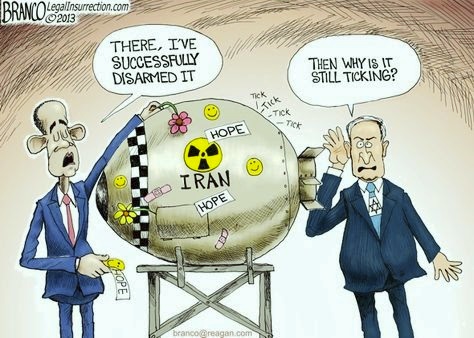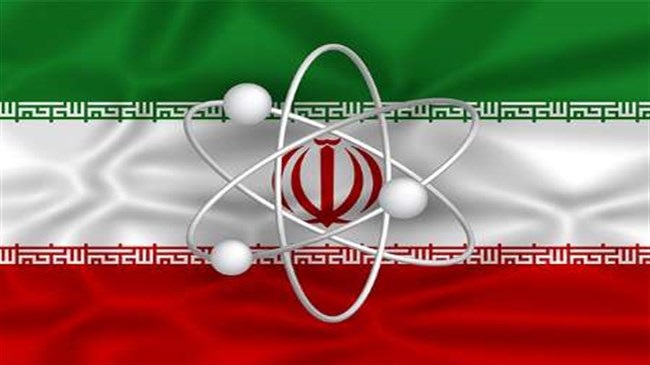By Katrina Vanden Heuvel
The Iran nuclear agreement characterized by The Post’s editorial board as the “most consequential U.S. diplomatic agreement in decades” will go forward, as all but four Senate Democrats rallied to fend off Republican efforts to torpedo it. The difficult and concrete achievement of diplomatic compromise has overcome the vacuous fantasies of military bluster. The question now is: What comes next?
Led by the early support of presidential candidates Hillary Clinton, Sen. Bernie Sanders (I-Vt.) and Martin O’Malley and pressured by grass-roots activists, Democrats in the House and Senate lined up to defend the agreement (with a notable exception of Sen. Charles Schumer of New York, who aspires to lead the very caucus he abandoned).
But now, opponents and supporters threaten to hamstring it at birth. Instead of building on the agreement to explore new areas of cooperation, the administration and its critics are pivoting quickly to threatening Iran in anticipation of it cheating on the agreement. While the agreement calls for lifting multilateral sanctions focused on foreign companies, most U.S. sanctions against Iran will remain in place.
The administration and senators of both parties are now proposing new sanctions and military maneuvers to ratchet up the pressure on Iran. Not surprisingly, that has precipitated a harsh reaction from Supreme Leader Ayatollah Ali Khamenei. This could quickly snatch defeat from the hands of victory, foreclosing any broader transformation of U.S.-Iranian relations and locking the United States into a continuation of its failed Middle East strategy.
This was to be expected from hawks like Dick Cheney , who dismissed negotiations from the start “We don’t negotiate with evil; we defeat it.” But it has also been adopted by Senate Democrats and leaders like Hillary Clinton. In a speech at the Brookings Institution, Clinton embraced the agreement but laid out a virtual map toward war in its wake.
“We need to be clear-eyed about what we can expect from Iran,” she said. “This isn’t the start of some broader diplomatic opening. And we shouldn’t expect that this deal will lead to a broader change in their behavior.” She strained to out-Reagan Reagan, promising to “distrust and verify.” She argued that we should anticipate that Iran would either violate the agreement or seek to wait us out or flex their muscles elsewhere and explicitly threatened military attack on Iran if it “attempts to obtain a nuclear weapon.”
But even before that, she pledged to “confront Iran across the board,” ramp up military aid to Israel, crack down on Hezbollah and Hamas, increase pressure on the Assad regime in Syria and harden sanctions on Iran for its support of the latter. She promised to sustain a more “robust military presence in the region, especially our air and naval forces.” She vowed to increase military support for “our allies in the Gulf,” meaning particularly Saudi Arabia, despite admitting that “much of the extremism in the world today is the direct result of policies and funding undertaken by the Saudi government and individuals. We would be foolish not to recognize that.”
And in case that wasn’t enough, Clinton also called for a more aggressive intervention against the Assad regime and a “concerted effort to ramp up costs on Putin and Russia, arguing that the Russians were seeking to “stymie and undermine American power whenever and wherever they can” (consigning to the memory hole Russia’s assistance in this agreement and in gaining removal of chemical weapons from Syria).
Is diplomatic success so threatening that it must be followed by military escalation? The hawks seem terrified to give peace even a breath, much less a chance. This bellicose pivot after the agreement will surely strengthen the hand of Iran’s hard-liners, validating their suspicions of American intent, while  reducing U.S. influence over the evolution of Iran as other nations develop commercial and investment relations spurned by the United States. Worse, it virtually locks us into our current failed strategy in the Middle East by sabotaging any potential areas of engagement with Iran.
reducing U.S. influence over the evolution of Iran as other nations develop commercial and investment relations spurned by the United States. Worse, it virtually locks us into our current failed strategy in the Middle East by sabotaging any potential areas of engagement with Iran.
In fact, a “clear-eyed” view would treat this remarkable breakthrough as a first step toward a broader rapprochement one that is in America’s strategic interest and critical for bringing some respite for a region now falling into chaos.
We could finally try to build on the reality that while Iran and the United States have deep conflicts over Israel, over terrorism, over the U.S. role in the region we also have substantial shared interests in countering the Islamic State and other terrorist groups, in seeking a settlement of the Syrian crisis, in supporting peace in Afghanistan, and in de-escalating the Sunni-Shia sectarian proxy war that is devastating the region. Iran already provides substantial aid to the Afghan government (even while hedging its bets with the Taliban). And Iranian and U.S. forces are already forced into some coordination in fighting the Islamic State in Iraq.
There is a stark difference between ensuring that the agreement is enforced and preemptively launching hostile measures and military pressures that blow up any chance of a broader opening. The danger is that as Republicans promise and Clinton implies he agreement becomes a new source of conflict, inflating disputes over verification, augmenting suspicions rather than alleviating them. Bellicose posturing too often ends up isolating the United States and undermining our security. Surely Iraq should have taught us that the military is an instrument of last resort, to be used in defense, not in illegal wars of choice.
In supporting the agreement, President Obama warned: “I believe future generations will judge us harshly for letting this moment slip away.” That remains true as the agreement moves forward. It can provide a counter to the drift into a senseless double war with Sunni extremism and Shiite Iran in the Persian Gulf and a new Cold War with Russia.
We should engage Iran to explore areas of cooperation, not so threaten them as to stoke their suspicions and fuel their hatreds. Obama has met the challenge of defending the Iran agreement. Now he has to make the case for a broader reframing of U.S. policy, backed by sober and persistent efforts to transform U.S.-Iran relations in the hope of countering the descent into chaos. Clinton and virtually the entire Republican presidential field are championing a more bellicose position that can only add to the calamity.
Now it is time for other leaders to stand up (calling Bernie Sanders) and champion a course that would enable the United States to help forge peaceful agreements in the region where war has proved so ruinous.
‘Courtesy Washington Post’.







